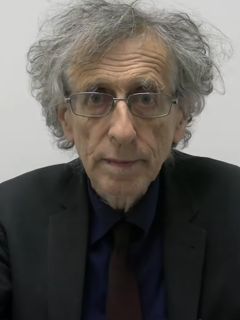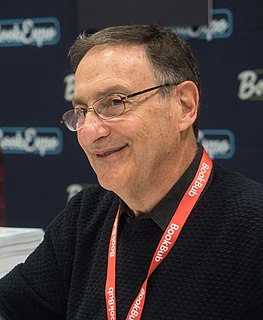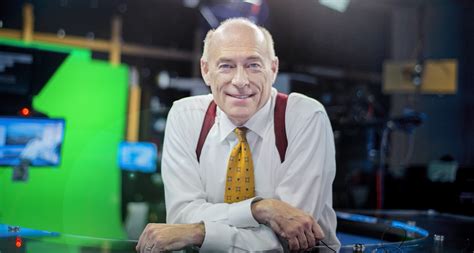A Quote by Mohsin Hamid
Given enough time, polar bears might migrate off the Arctic ice, evolve darker coats, find a different diet, and thrive in a new, warmer climate. But if the ice on which they depend disappears in a few decades, they are likely to die.
Related Quotes
Polar bears did very well in the warmer times. They didn't die out at all; they didn't die out in the last 10,000 years, nor during the previous interglacial, nor the one before that. So, they're just used as a deceitful heartthrob; you know, to pluck your heartstrings because the polar bears might die out.
There's another totally fraudulent recipient of the Nobel Peace Prize. Al Gore hadn't done anything but make a movie that itself was filled with misrepresentations about the amount of ice the poor polar bears have to live on, doctored photos. He said in his acceptance speech in 2007, getting a Nobel Peace Prize, that the North Pole would be ice free by 2013. Today the truth is, there is a record amount of arctic ice for this time of year. He couldn't have been more wrong.
For humans, the Arctic is a harshly inhospitable place, but the conditions there are precisely what polar bears require to survive - and thrive. 'Harsh' to us is 'home' for them. Take away the ice and snow, increase the temperature by even a little, and the realm that makes their lives possible literally melts away.
It's Earth Day today. Let me tell you something about polar bears. They're endangered but you have to be careful because a polar bear is one of the few animals that will stalk a human. If you go to where polar bears live, it might stalk you and when you're on the plane going home, it might be behind you reading.
When it does get below freezing and there is - it's cold enough for ice to form, then that changes the whole landscape, and it makes the landscape a different landscape to the one that I worked with previously. And I want to understand that. But the big tension of the ice works is that they're often made when it's cold enough to freeze one piece of ice to another.
The climate of this planet has been changing since God put the planet here. It will always change, and the warming in the last 10 years is not much difference than the warming we saw in the 1930s and other decades. And, lets not forget we are at the end of the ice age in which ice covered most of North America and Northern Europe.
Living in the modern age, death for virtue is the wage. So it seems in darker hours. Evil wins, kindness cowers. Ruled by violence and vice we all stand upon thin ice. Are we brave or are we mice, here upon such thin, thin ice? Dare we linger, dare we skate? Dare we laugh or celebrate, knowing we may strain the ice? Preserve the ice at any price?
On the ice, I feel like I can become a different person, and the darker dramatics, the Black Swan, is confident: she's free to do whatever she wants, and that attitude helps in my skating. The White Swan is, I feel, more what I'm actually like off the ice: I'm a lot quieter, and if someone tells me to do something, I'll just do it.





































